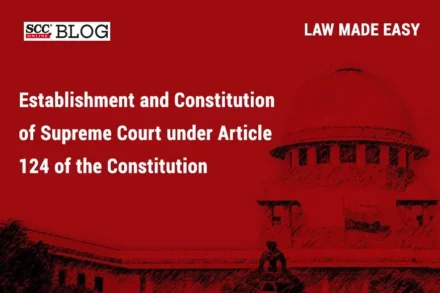
Establishment and Constitution of Supreme Court under Article 124 of the Constitution
The makers of the Constitution of India advocated for Separation of Power and demarcated the limits, roles and functions of every organ

The makers of the Constitution of India advocated for Separation of Power and demarcated the limits, roles and functions of every organ
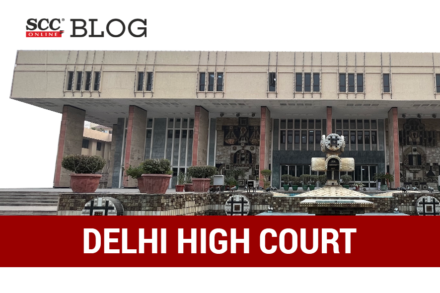
In Aashirward Films v. Union of India, (2007) 6 SCC 624, Supreme Court laid down that a taxing statute for the reasons of functional expediency and even otherwise, can pick and choose to tax some; so long as the classification is reasonable.
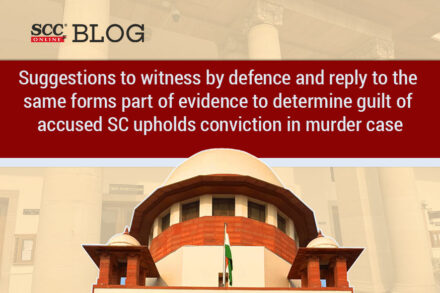
Supreme Court was quick to clarify that if prosecution was unable to prove its case on its own legs, then it won’t be able to derive advantage from the weakness of the defence and the Court would not be able to convict the accused on the strength of the evidence in the form of reply to the suggestions made by the defence counsel to a witness.
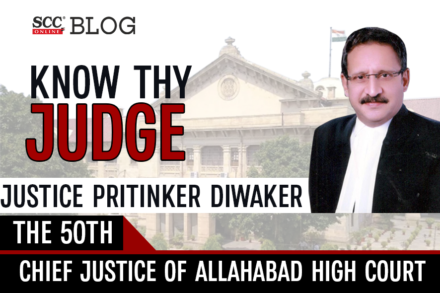
Prior to being appointed as Allahabad High Court’s 50th Chief Justice, Justice Pritinker Diwaker had been working as the High Court’s Acting Chief Justice after elevation of former Chief Justice, Rajesh Bindal
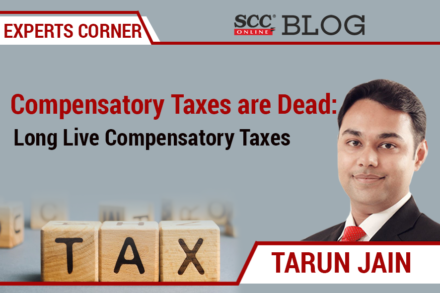
by Tarun Jain†
Cite as: 2023 SCC OnLine Blog Exp 20
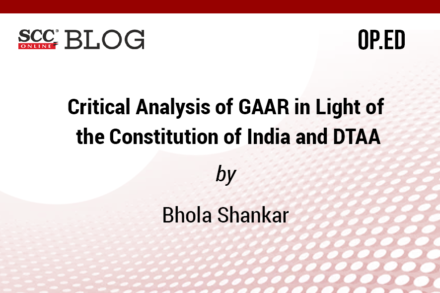
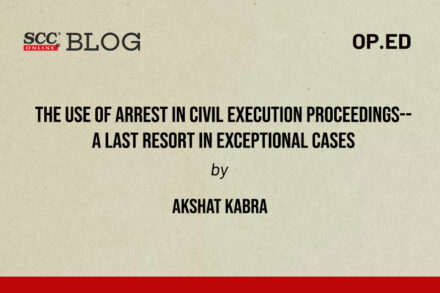
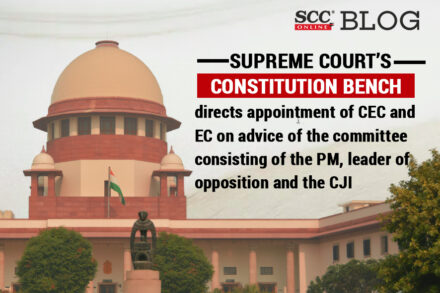
Supreme Court directs appointment of Chief Election Commissioner and Election Commissioners on advise of the committee consisting of the Prime Minister, leader of opposition and the Chief Justice of India
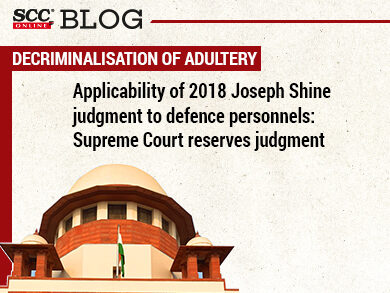
Applicant submitted that the 2018 judgment may cause instability within the defence personnel’s services since they function in peculiar conditions who are separated from their families for long durations when posted on borders under challenging conditions, in view of the 2018 judgment, there will always be a concern in their minds about the family indulging in untoward activity.
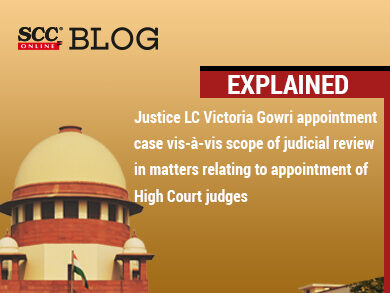
Supreme Court said that the conduct of the judge and her/his decisions must reflect and show independence, adherence to the democratic and constitutional values. This is necessary as the judiciary holds the centre stage in protecting and strengthening democracy and upholding human rights and the Rule of law.
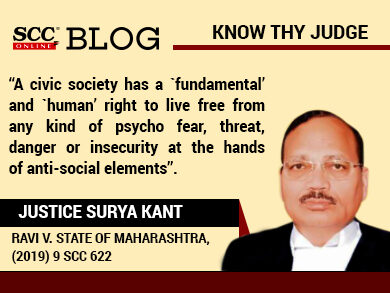
Born on 10-02-1962 in Hisar, Justice Surya Kant, has the distinction to be appointed as the youngest Advocate General of Haryana. Before being elevated as a Supreme Court Judge, Justice Surya Kant served as a Judge in the Punjab and Haryana High Court and as Chief Justice of Himanchal Pradesh High Court.
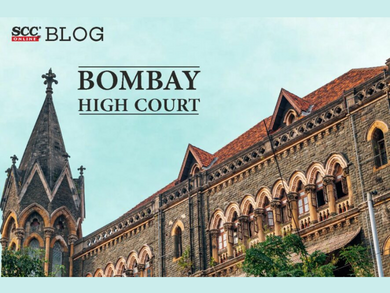
Imposing a prohibitory ban on merchant establishments and establishments that provide livelihood is contrary to the enshrined principles under Article 21.
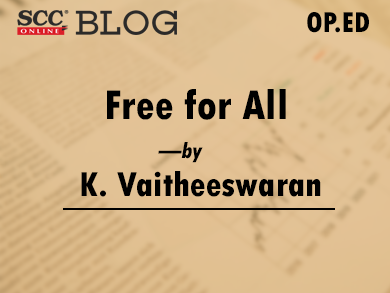
by K. Vaitheeswaran*
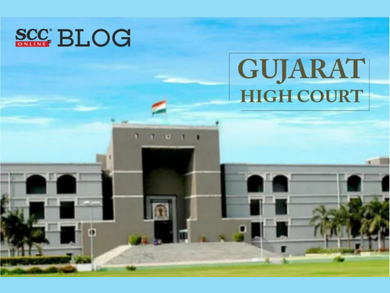
Gujarat High Court denied entry to an American Passport holder who has been convicted as a sex offender and held that petition filed by the petitioner's father on petitioner's behalf, invoking Articles 14 and 19 of the Constitution of India, is not maintainable because life and liberty of a person not on the shore of India, cannot be invoked on his behalf when the individual himself is not in India
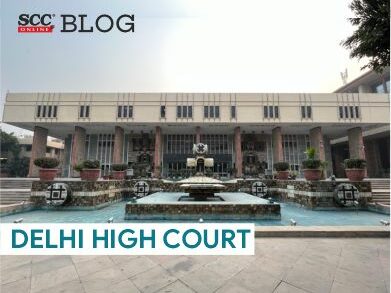
The Delhi High Court held that the engagement of BSNL VRS-2019 retirees in any Central Public Sector Enterprises/Government department on contractual/consultancy basis, for which the retired employees on superannuation in due course were eligible for consideration, was not in violation of Clause 8 (iii) of BSNL Voluntary Retirement Scheme-2019.
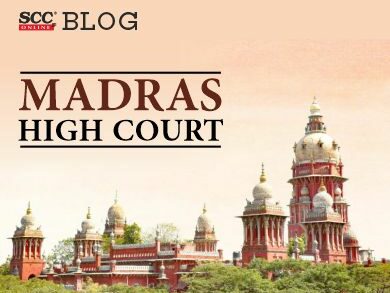
Madras High Court said that, while dealing with the issue involved in this public interest litigation, the following words of the South African anti-apartheid activist, Nelson Mandela resonate in their mind – “No one truly knows a nation until one has been inside its jails. A nation should not be judged by how it treats its highest citizens, but its lowest ones”.

Statutory warnings are intended to instill a sense of fear, but they have had very little effect on human attitudes and behaviour towards alcohol consumption. It is also a sorry state of affairs that persons under 21 years, who are specifically prohibited from drinking alcohol, are in fact addicted to it. Therefore, it is incumbent on the State Government to reduce alcohol dependence and addiction as a public health measure by restricting and effectively regulating its sale and consumption.
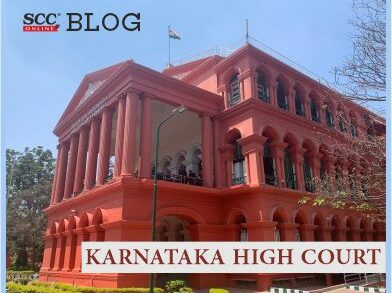
In an impassioned ruling, the single Judge Bench of the Karnataka High Court observed that the word “men” in the impugned Guideline perpetrates gender bias and misogyny and urged that there is an imperative need of change of nomenclature from ‘ex-servicemen’ to that of ‘ex-service personnel’
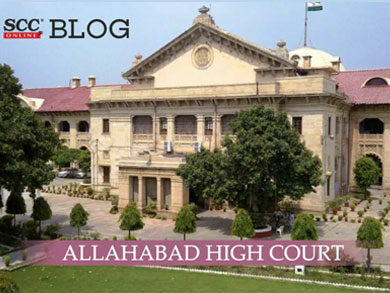
In the case at hand, the date of birth of both the petitioners showed them to be major and they claim their decision live together to be based upon voluntarily will/option.

It is inclusion not exclusion, equality not inequality and democracy not executive fiat that runs as a common thread throughout our Constitution. In a society as diverse as ours it has been the endeavour of our Constitutional Courts to further strengthen this thread.